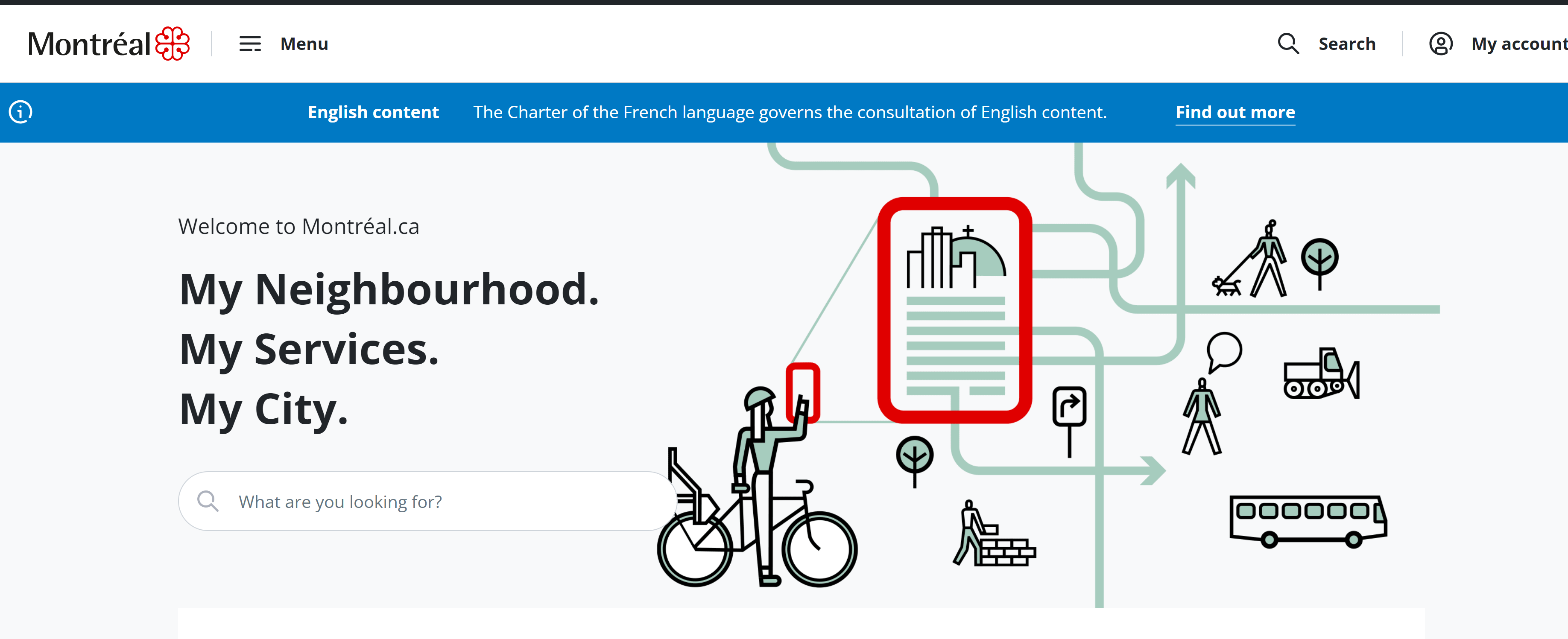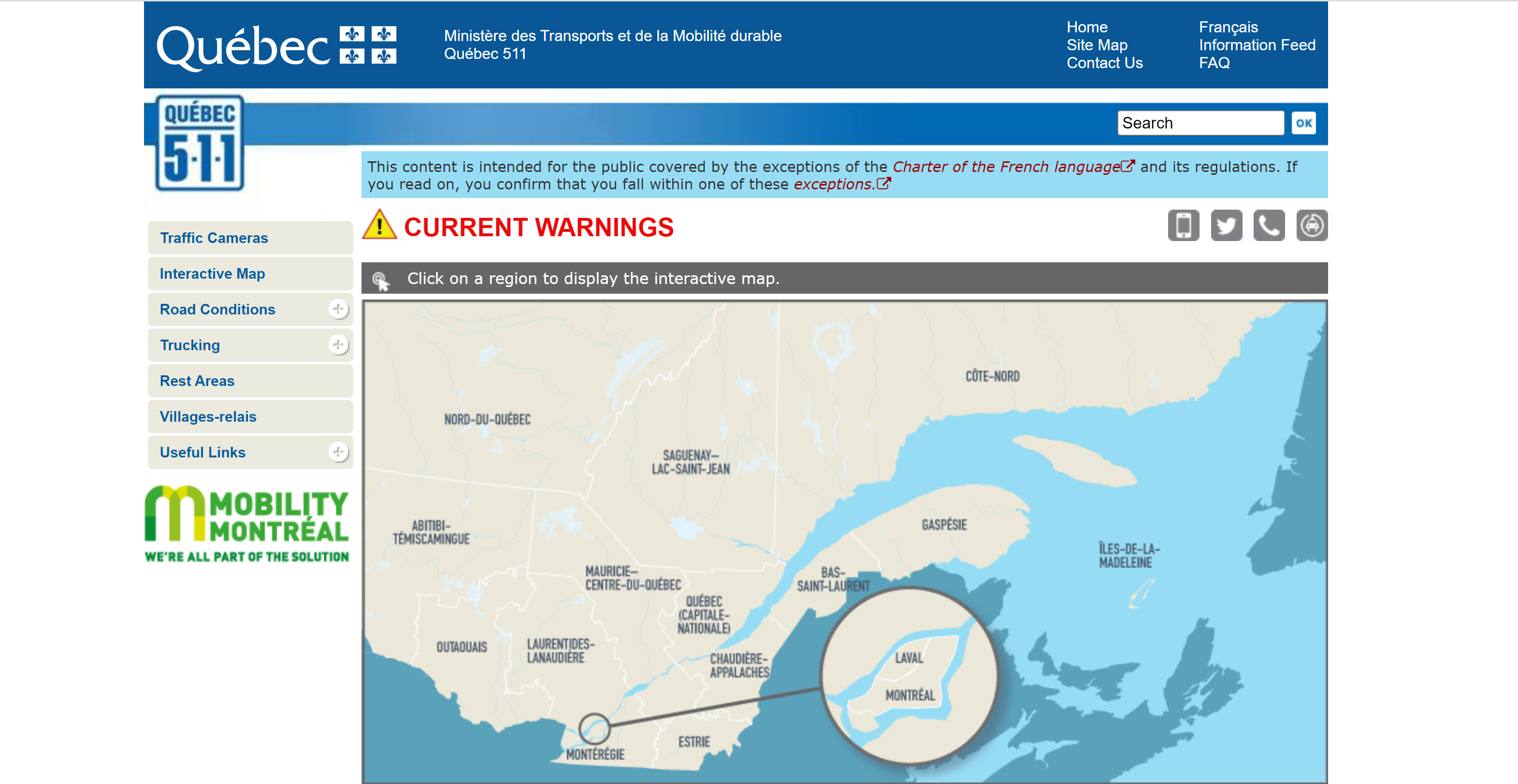New voice message on Montreal’s 311 line for those who want service in English
Posted June 2, 2023 11:09 am.
Last Updated June 2, 2023 6:31 pm.
Calling Montreal’s 311 municipal phone line and hoping to be served in English? Since provisions of Quebec’s new language law, Bill 96, have come into effect on June 1, the line has a new recorded voice message for people who would like to be served in English.
The recording will ask you “to attest in good faith that you have acquired rights as an English speaker in the province to be served in English”.
It goes on to explain that a person who has the right to receive services in English under the Charter of the French language, is “a person who is declared eligible to receive education in English, an Indigenous person, a recently arrived immigrant residing in Quebec for under six months or if you’re calling outside of Quebec, or if you corresponded solely in English with the City of Montreal prior to May 31, 2023.”
It states “if you attest in good faith press 2, otherwise please press 1” for service in French.
One of the controversial previsions of Bill 96 that came into effect on June 1, 2023 requires employees of government agencies to serve clients in French, unless the clients have the acquired English language rights, what has been referred to as a “historic anglophone”.
Critics of Bill 96, have said this leaves room for conflict between employees giving services, and those receiving it.
On Thursday the Mayor of Montreal, Valerie Plante, said they are following the rules but would not be policing the law.
On Friday, Jack Jedwab, the president and CEO for the Association for Canadian Studies, acknowledged that there is a threat to the French language, but says that this measure to attest in “good faith,” to verify that one qualifies for services in English, will probably not achieve its desired effect.
“The big call for good faith on these type of issues, in terms of determining whether you qualify for the services, is probably not going to succeed when the majority of people who are being required to do this don’t feel that the government’s legislation is based on good faith,” said Jedwab.
Making Quebecers attest in good faith that have the right to speak English is either not enough, too much, or just the right approach for Montrealers we spoke to in downtown Montreal.
“I think we need to give some sort of trust to the people. At the end of the day, if we want to receive some trust back. So I think it’s always a balance,” said Alexandre Valembois, a Montrealer from France.
“They’re not going to say the truth to get the same service. So, I think the law will probably have to change, to be fair to everybody.” said Frédérick, another Montrealer.
Jedwab anticpates, “this will probably create more frustration on the part of the very people that the government has contributed to sort of creating this high level of anxiety about the condition the French language,” adding, “these measures aren’t working and will probably call for something else.”
Côte-Saint-Luc has its own new voice message
The City of Côte-Saint-Luc, which has bilingual status, poked fun at Montreal’s new 311 message.
When you call the municipal help line there the voice mail states if you want service in English press 2 and “you don’t have to shows us your grade 3 report card or your family tree going back ten years. And, you don’t have to pinky-promise anything. This is the City of Côte-Saint-Luc, and that’s how we roll.”
Warnings on English government websites
Government websites, including the City of Montreal’s, are also showing new messages on their English sites.
At the top of the City of Montreal website it states “The Charter of the French language governs the consultation of English content,” you can then click to find out more, which brings you to a page on the Quebec government website explaining Bill 96.
“Under the general principle of exemplariness, all communications of the civil administration must be solely in French. This applies, in particular, to the language of public services,” the website reads.
The Quebec 511 website as well as the SAQ website have the same message at the top of their English pages: “This content is intended for the public covered by the exceptions of the Charter of the French language and its regulations. If you read on, you confirm that you fall within one of these exceptions.”

A screen capture of the City of Montreal English website on June 2, 2023.

A screen capture of the Quebec 511 English website on June 2, 2023.








